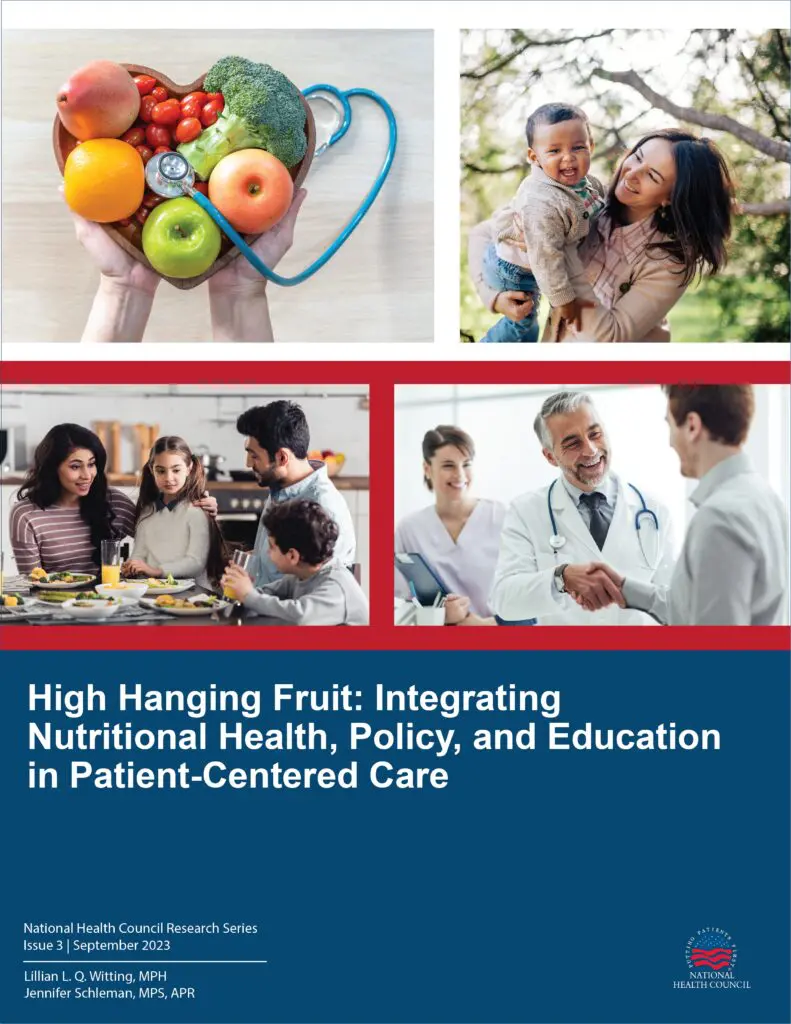High Hanging Fruit: Integrating Nutritional Health, Policy, and Education in Patient-Centered Care
09/22/2023
Executive Summary
Dietary behavior and food security – or the ability of a household to access healthy, nutritious food – are rising public health issues that have strong associations with chronic diseases like cancer, diabetes, chronic kidney disease, and other cardiometabolic conditions. This association raises the importance of nutrition care in health care settings. Providers are on the front lines of shifting toward nutrition care. Nutrition training and education, increased interaction with other nutrition health specialists, and access to quality evidence-based nutrition research are essential to increasing nutrition knowledge to providers not experienced in this area. Additionally, it is crucial to recognize the barriers and disparities that patients face when prescribed nutritional advice. By contextualizing the patient within social, economic, and environmental factors, health professionals can better provide robust programs while policy makers implement policies to assist in food accessibility. As the importance of nutritional care increases, patient groups have an opportunity to help shape programs and policies that will impact the long-term health of patients. The goals of this research brief are to address the current gaps and disparities in nutrition care, provide recommendations for a variety of stakeholders to expand patient care and improve a system of care that better integrates, and supports nutritional health.
